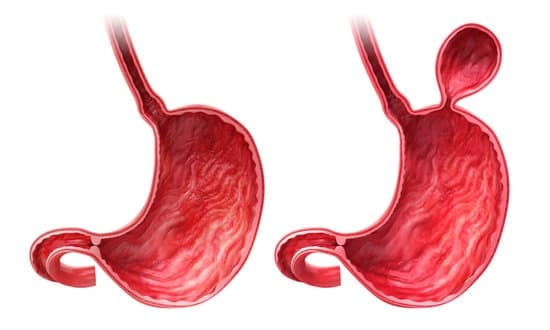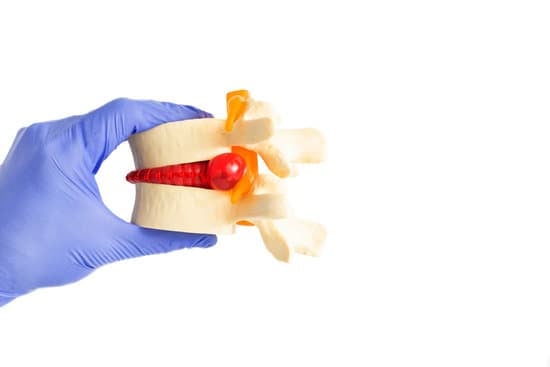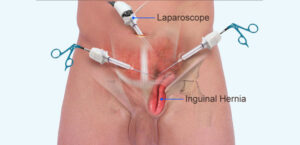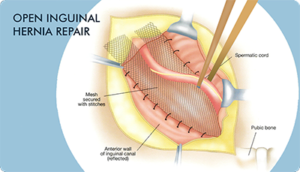Discover Expert Care for Abdominal Hernia in Dubai
If you’re experiencing discomfort or pain in your groin area, it could be a sign of an inguinal hernia. This common condition often requires hernia surgery for effective treatment. Whether you’ve been diagnosed or suspect you may have an inguinal hernia, it’s crucial to understand the diagnostic process and the treatment options available. Consulting with the Best Laparoscopic & Bariatric Surgeon can help you make the best decision for your health and guide you through the necessary steps to address the condition.



In this article, we’ll walk you through everything you need to know about hernia surgery, including how it’s diagnosed and the various hernia treatment options. We aim to provide you with reliable, expert information that empowers you to navigate your healthcare journey with confidence. Whether you’re exploring different hernia surgery techniques or seeking guidance from the Best Laparoscopic & Bariatric Surgeon, this comprehensive guide will help you understand how inguinal hernias are treated effectively. Let’s dive into the details of this condition and its management.
An inguinal hernia occurs when a portion of tissue, such as part of the intestine or fat, pushes through a weakened spot in the abdominal wall near the groin. This condition often results in a noticeable bulge, discomfort, or pain, especially when lifting heavy objects, coughing, or standing for extended periods. Inguinal hernias are one of the most common types of hernias, and they can affect individuals of all ages, from infants to older adults. While they might not always cause severe symptoms, untreated inguinal hernias can lead to complications, such as strangulation, which requires immediate medical attention.
For effective treatment, hernia surgery is typically recommended, and modern advancements like laparoscopic techniques have made the procedure less invasive and recovery quicker. If you’re seeking the best care, consulting with the Best Laparoscopic & Bariatric Surgeon ensures precision and expertise during the treatment process. This type of surgery not only repairs the hernia but also helps restore normal functionality, allowing patients to resume their daily activities with minimal downtime.
An inguinal hernia typically presents with noticeable symptoms that can vary in severity. The most common sign is a bulge or swelling in the groin or scrotum, which becomes more prominent when standing, coughing, or lifting heavy objects. Other symptoms include a feeling of heaviness, pressure, or discomfort in the groin area. In some cases, pain may occur, especially during physical activity or prolonged standing. While small hernias may not cause significant discomfort initially, they can worsen over time and require prompt medical attention. Delaying treatment might lead to complications, including the risk of hernia strangulation, which is a medical emergency requiring immediate hernia surgery.
The diagnosis of an inguinal hernia involves a thorough physical examination by a healthcare professional, often accompanied by imaging studies such as ultrasound or CT scans for confirmation. During the exam, the doctor may ask you to cough or strain to detect the hernia more easily. Seeking evaluation from the Best Laparoscopic & Bariatric Surgeon can ensure accurate diagnosis and effective treatment planning. Laparoscopic hernia surgery is a minimally invasive approach commonly recommended for repairing inguinal hernias, offering quicker recovery and less post-operative pain. Early diagnosis and timely intervention are key to preventing complications and ensuring a successful outcome.
Inguinal hernias can be treated using two main surgical techniques: open hernia surgery and laparoscopic hernia surgery. In open hernia surgery, the surgeon makes a single incision in the groin to access the hernia. The protruding tissue is pushed back into place, and the weakened area is reinforced with a synthetic mesh to prevent recurrence. This method is often recommended for larger hernias or patients who may not be suitable candidates for minimally invasive procedures. Recovery from open surgery may take a bit longer, but it remains a reliable treatment option for many patients.


Laparoscopic hernia surgery, on the other hand, is a minimally invasive procedure performed using small incisions, a camera, and specialized instruments. This technique is associated with faster recovery times, minimal scarring, and reduced postoperative discomfort. Often regarded as the best approach, particularly for bilateral or recurrent hernias, laparoscopic surgery is preferred by many patients seeking efficient and effective results. If you’re considering this option, consulting with the Best Laparoscopic & Bariatric Surgeon can ensure optimal outcomes and expert care tailored to your needs. Choosing the right surgical method depends on the specifics of your condition and your surgeon’s recommendation.
Traditional open hernia repair surgery is one of the most established techniques for treating inguinal hernias. This procedure involves making an incision in the groin area to access the hernia. The surgeon identifies the protruding tissue or organ, gently pushes it back into place, and strengthens the weakened area of the abdominal wall using stitches or synthetic mesh. This approach ensures the hernia is securely repaired, minimizing the risk of recurrence. While effective, open hernia surgery typically requires a longer recovery period compared to minimally invasive techniques and may leave a noticeable scar.
If you’re considering this type of hernia surgery, it’s important to consult the Best Laparoscopic & Bariatric Surgeon for expert advice and personalized care. While traditional open hernia repair remains a reliable option for certain patients, advancements in laparoscopic techniques now offer less invasive alternatives with quicker recovery times. Choosing the right surgeon ensures you receive tailored treatment and guidance, whether traditional open repair or a modern laparoscopic approach is recommended for your specific condition.
Laparoscopic hernia repair surgery is a minimally invasive technique used to treat inguinal hernias effectively. During this procedure, the surgeon makes small incisions in the abdomen and uses a laparoscope—a thin, flexible tube equipped with a camera—to visualize the hernia. Specialized instruments are then used to repair the hernia by placing a synthetic mesh over the weak area, reinforcing the abdominal wall. Compared to traditional open surgery, laparoscopic hernia surgery offers several benefits, including smaller scars, reduced pain, and a faster recovery period. This advanced method is highly recommended for patients seeking a less invasive option to address their condition.
If you’re considering laparoscopic hernia surgery, it’s crucial to choose a skilled and experienced professional. The Best Laparoscopic & Bariatric Surgeon can ensure precision and safety during the procedure, minimizing complications and enhancing outcomes. With their expertise, patients can expect a quicker return to normal activities and a lower risk of recurrence. Whether you’re seeking relief from persistent groin discomfort or have been diagnosed with an inguinal hernia, laparoscopic repair is an excellent option to restore your health and quality of life.
After undergoing hernia surgery, particularly inguinal hernia surgery, patients can generally expect a recovery period that lasts a few weeks. While the procedure itself is relatively straightforward, taking the necessary steps during recovery is crucial to avoid complications. In the first few days following surgery, patients should rest and limit physical activities, especially those that involve heavy lifting or strenuous movements. Swelling and discomfort around the incision sites are common, and patients may be prescribed pain medication to manage these symptoms. Ice packs can also be helpful in reducing swelling. It is essential to follow the surgeon’s instructions on activity restrictions and attend follow-up appointments to ensure proper healing.
The second phase of recovery usually involves a gradual return to daily activities, but patients must still avoid heavy lifting or strenuous exercise for several weeks. The healing process is quicker with laparoscopic surgery compared to traditional methods, as it is minimally invasive and involves smaller incisions. For those seeking the Best Laparoscopic & Bariatric Surgeon, the expertise of the surgeon plays a significant role in ensuring a smooth recovery process. Good aftercare practices, including wearing supportive garments if recommended, eating a balanced diet to promote healing, and following up with the surgeon, will help minimize risks and support a successful recovery from hernia surgery. With proper care and attention, most patients can return to their normal activities within four to six weeks.
While inguinal hernia surgery is generally safe and effective, like any surgical procedure, it carries certain risks and potential complications. One of the most common risks is infection at the site of the incision, which can lead to delayed healing or further complications if not addressed promptly. Another potential risk is injury to surrounding structures, such as blood vessels or nerves, which may result in chronic pain or discomfort. In rare cases, patients may experience a recurrence of the hernia, requiring additional surgery. It’s important to discuss these risks with your surgeon to ensure you have a clear understanding of what to expect during and after surgery.
To minimize these risks, it’s essential to choose a highly qualified surgeon, such as the Best Laparoscopic & Bariatric Surgeon, who specializes in hernia surgeries. Surgeons with expertise in laparoscopic techniques offer the advantage of smaller incisions, which can reduce the risk of infection, speed up recovery, and improve overall outcomes. However, even with the best surgical care, complications such as blood clots or anesthesia reactions can occur. By closely following your surgeon’s aftercare instructions and maintaining open communication, you can reduce the likelihood of these complications and enhance the chances of a successful recovery following hernia surgery.
When choosing a surgeon for inguinal hernia surgery, it’s essential to prioritize experience, expertise, and the surgeon’s ability to offer the most advanced treatment options. A highly skilled surgeon will not only accurately diagnose the condition but also provide tailored recommendations for your specific needs. For many patients, hernia surgery can be performed using minimally invasive techniques such as laparoscopic surgery, which leads to faster recovery times and reduced post-surgery discomfort. It’s important to choose a surgeon who is well-versed in the latest surgical methods, including laparoscopic procedures, as this can significantly impact the outcome of the surgery. Ensure that the surgeon has a solid track record in performing successful hernia surgery with a focus on patient-centered care.
Additionally, selecting the Best Laparoscopic & Bariatric Surgeon for your inguinal hernia surgery can make a significant difference in your overall experience and recovery. Surgeons specializing in laparoscopic and bariatric surgeon procedures typically have advanced skills in handling complex surgeries with precision, reducing the risk of complications. When looking for a surgeon, consider their certifications, years of experience, and patient reviews. It’s also beneficial to discuss your concerns openly with the surgeon to gauge their approach to treatment and aftercare. With the right surgeon, you can feel confident that your hernia surgery will be managed with the highest standards of care, ensuring the best possible outcomes.
When preparing for inguinal hernia surgery, it’s crucial to follow your surgeon’s instructions to ensure a smooth and successful procedure. First, you will likely undergo a series of pre-operative assessments, including a physical exam, blood tests, and possibly imaging to confirm the size and location of the hernia. It’s essential to discuss your medical history, including any medications you’re taking, as certain drugs may need to be adjusted or temporarily stopped before surgery. You’ll also be advised on when to stop eating or drinking before the surgery, typically 12 hours prior to your procedure, to avoid complications during anesthesia. Make sure you arrange for someone to take you home after the surgery, as you won’t be able to drive yourself due to the anesthesia effects.
Consulting with the Best Laparoscopic & Bariatric Surgeon is a vital step in ensuring optimal outcomes. These specialized surgeons are highly trained in minimally invasive techniques, which are commonly used for inguinal hernia repair, offering faster recovery and less post-surgical pain. During your consultation, your surgeon will discuss the best approach for your specific case, including whether traditional open surgery or laparoscopic surgery is recommended. Understanding the surgical options and the recovery process will help you mentally prepare for the procedure and follow the necessary steps for post-operative care, ensuring a successful recovery.
Inguinal hernias, though common, can lead to significant discomfort and complications if left untreated. hernia surgery is often the most effective treatment to repair the hernia and prevent further issues. While there are different approaches to surgery, such as open surgery and laparoscopic techniques, the choice of treatment depends on various factors like the hernia’s size, the patient’s overall health, and the surgeon’s expertise. It’s crucial to consult with the Best Laparoscopic & Bariatric Surgeon to determine the most suitable surgical option for your condition. Their expertise can ensure a smoother recovery and a lower risk of complications, making them the key to a successful outcome.
If you suspect you have an inguinal hernia or have been diagnosed with one, seeking professional medical advice and considering hernia surgery is essential for managing the condition. The Best Laparoscopic & Bariatric Surgeon will provide you with personalized care, guide you through the surgical options, and help you achieve optimal results. With the right surgical treatment, you can return to your normal activities and experience long-term relief. Don’t delay seeking help—understanding your condition and taking timely action is the best way to ensure a healthy future.


Schedule your appointment quickly and easily with just a few clicks.




Dr Ahmed Hassn is a UK trained highly qualified Best Laparoscopic & Bariatric Surgeon with more than 21 years of consultant experience in his field.
Don’t miss our future updates! Get Subscribed Today!
©2024. Dr Ahmed Hassn. All Rights Reserved.